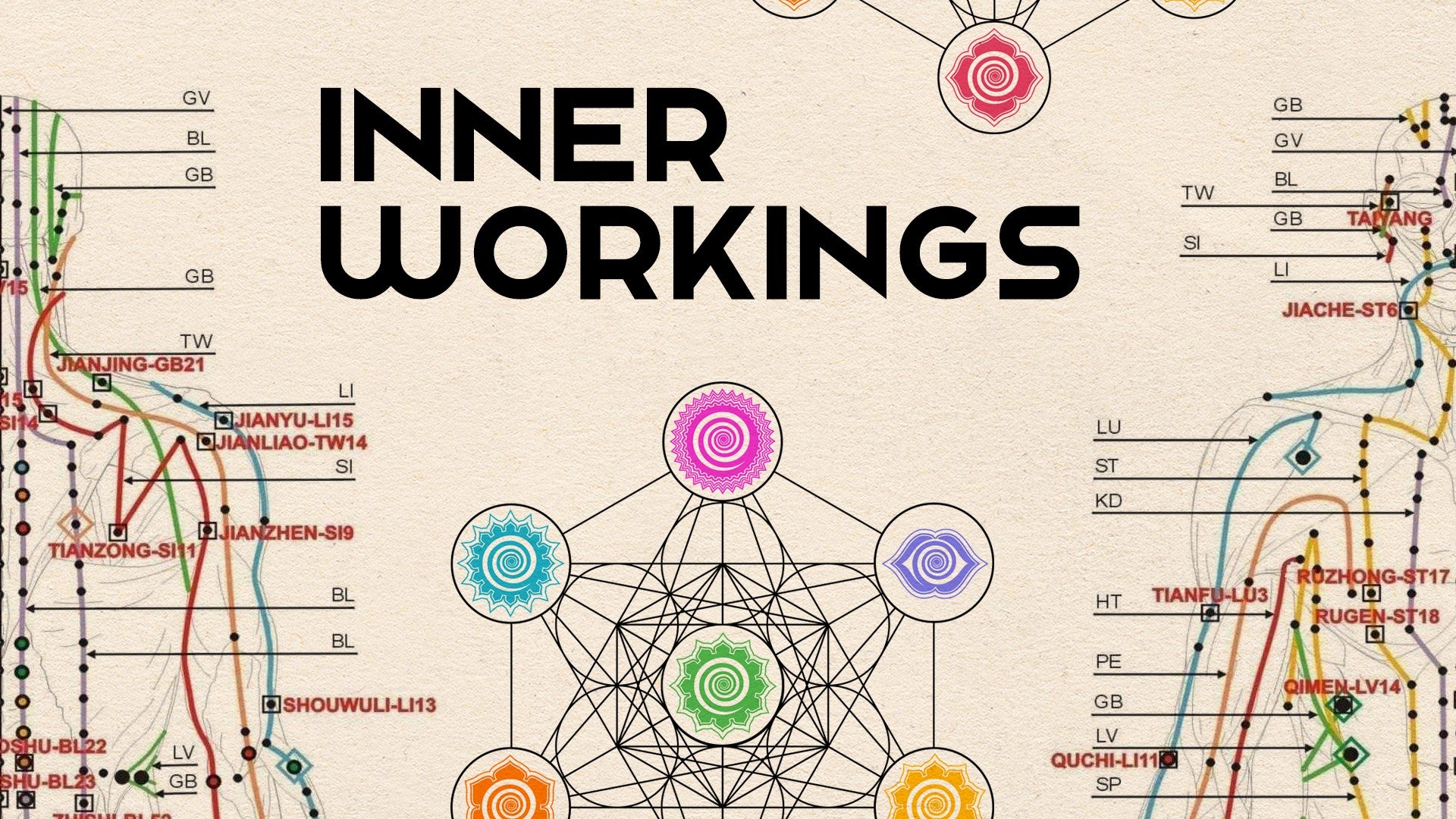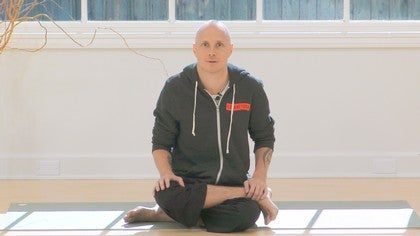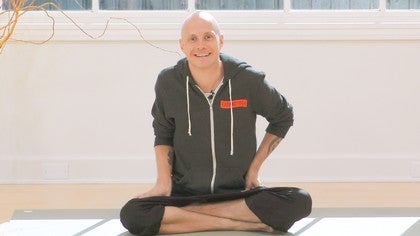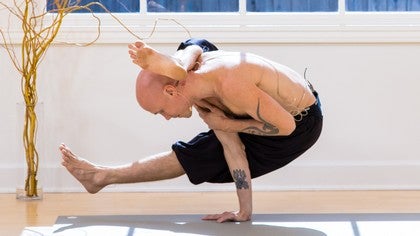Description
About This Video
Transcript
Read Full Transcript
Okay, a little bit about courses. There's many ways. You can practice yoga in many levels of consciousness and now I was thinking to go through one way to define or a little bit categorize this, how we can do the yoga. So first level is Anamaya. Anamaya basically means food. This is the level of the basic needs. It basically refers to eating, sleeping, sex, and defending. So we can practice yoga on this level so that we try to somehow moderate control these things. How we eat, what we eat, when we eat, how we sleep, and also try to a little bit control the sex life. And also defending. Defending can refer in many things here. It's not only that I punch someone before they punch me, but it's more like we are defending ourselves all the time. We build the houses so we defend ourselves from the environment whether we take medicine when we are sick or try to prevent getting the sick. So also this kind of how I defend myself. I can practice yoga also in that level. What kind of medicine I take when I get sick because some medicines are better than others. Not to go too much into that, but to be too controversial. Okay. So that's first. And then next level is Pranamaya. Prana basically means life, air. This is level of physical culture. And when we do asana practice, that's very physical. So we can work on this level also when we do yoga. Yoga. So that we try to find that kind of yoga practice that actually supports the physical well-being and also well-being of the mind. Not only physical. Because sometimes things may be physically okay, but mentally they are more taxing. Mentally they are not suitable for me. So in order, if I want to do yoga properly, I try to find that kind of exercise that is physically and mentally suitable for me. Or that kind of way to live, maintain the physical health. It doesn't necessarily need to be asana practice. There's also other ways to do yogic exercise than doing asana practice. Example swimming is a very sad way to exercise. And it can be better for some people. More better than, example, asana practice. And then Mano Maya. Mano Maya level is next. Mano refers to mind, manas. So this is kind of mental level. How I practice. And this also means that this is social level. How I practice yoga and social interactions. How I deal with the people. Because it's very difficult to concentrate, do your meditation if I don't really, if I really don't have proper relationship with people around me. If my social life is mess, it's very difficult to concentrate on some personal practice also. So yoga also means that I try to somehow harmonize as far as I can. Of course, it's impossible to do it 100% because it's not only dependent on us, how our social interactions. There's other factors also. But do our best so that our social life is quite balanced. We have right kind of people around us, right time. We can choose a certain extent which we can choose what kind of relationship we have. And also that we can keep the mind mental level, mind's level stable. So that we act in that way that mind is relatively peaceful and balanced. That's Mano Maya level. And then the Mano Maya level is how we feed our intellect also in yogic way. So that we, how, like asking questions, what is the, example why I'm here. What is this life? Where I'm going? Who am I? Asking this and try to find the answers. Some people are more philosophical, have less philosophical, but that's not, that's not the problem. Everyone can use the intellect for the purpose of yoga. Try to approach, approach the self or approach the God, whatever is the goal of one's practice by working with the intellect, intellectual level. Guiana yoga. And then after Guiana yoga comes V Guiana yoga. V Guiana means, if Guiana means no let's understand theoretical things, V Guiana refers to practical understanding, realization. Like example if I study about self, I read the books, I have philosophical discussions with the people, but I don't really touch the self yet. But when I'm V Guiana my level, I do some exercises, examples of meditation or praying exercises where I try to get in the touch with the self. I try to understand the self. So that's kind of difference between Guiana, V Guiana, Maya levels. And then our last step would be Ananda, Maya level. Ananda means please, it means basically level of the self realization. If V Guiana, Maya level is still on the level of practice, I would see Ananda, Maya level is more on the level of already understanding what is the self, what is the God. And when we understand this, then we are happy because that's the quality of the self. Then we are touched with the quality of self which is the happiness part. Guiana, V Guiana, Maya level, we are more connected on the quality of the self which is about to be conscious. So Ananda, Maya and Prana, Maya level, the practice in yoga is more on the physical level. So that I kind of try to maintain my physical well-being by eating right way, sleeping right way, not too much, not too little like Bhagavad Gita says. And then it's very relative but I have to find some kind of balance. And doing physical culture also some way, healthy way, the physical health. And one of Maya level is more on the social level that I try to build proper social connections with right kind of people. In that way that it supports my yoga practice. Because if I have wrong kind of people around me, then it's difficult. It might be a little bit difficult to practice yoga. So one of Maya level. And one of Maya level also means that I try to somehow achieve the mental balance. That I'm more or less balanced mentally. Because if mind is not balanced, it's very difficult to go deeper levels of practice. And Gyanamaya level is that I can do it so that I study the sastras, so study the scriptures. Or whatever is my tradition if I study the spiritual texts. And also I try to talk with people who have some understanding about spiritual subject matter. I have some kind of conversations in order to get some realization. Because that one way to get realization is through the conversation. One way to get realization is through someone else's experiences. Sometimes you see people say that reading the book is useless. But it's not useless. It's someone else's experience, yes. But I can learn. Same way as I can learn from person, I can learn if someone has written down their experience. I can get realization, personal realization to someone else's experiences. So that's how I can practice the Gyanamaya level.
The Gyanamaya level is that I do meditation. I practice either whatever is my tradition. If my tradition is more religious, I can chant God's name, meditate God's name. Or if I can try to focus the mind if I'm more secular point of view. Or somehow I try to do meditation. Practice meditation. Do the mantras. To get the experience. Because when you do the meditation, you try to experience the object of the meditation. You try to get, that's direct. It's based on direct experience. Meditation or prayer is based on direct experience. And studying the scriptures is still direct, but it's a little bit less direct still. But it's important. It's important. And then not under my level, then okay. Then you don't need to worry about it. It's okay already. You're done. Done it. Don't ask me. You tell me. Okay. Thank you. Namaste.
Inner Workings: Jani Jaatinen & Ricky Tran
Comments
You need to be a subscriber to post a comment.
Please Log In or Create an Account to start your free trial.








